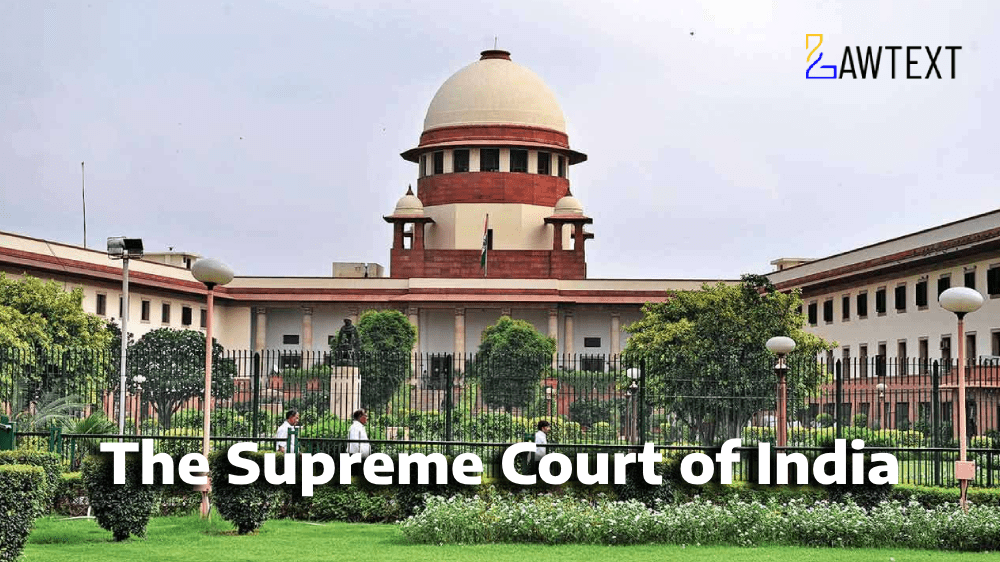Supreme Court Upholds High Court’s Decision, Dismisses Appeals on Property Ownership Dispute Land ownership, possession rights, and the doctrine of adverse possession scrutinized in depth.

CASE NOTE & SUMMARY
The Supreme Court of India, dismissed the appeals filed by Neelam Gupta and others, upholding the High Court’s ruling granting possession rights to Rajendra Kumar Gupta. The case revolved around a property ownership dispute and allegations of adverse possession. The court emphasized the importance of proving hostile intent in claims of adverse possession and clarified the application of relevant legal provisions, including the Benami Transactions (Prohibition) Act, 1988, and the Limitation Act, 1963.
Main Facts (Para-wise Breakdown):
-
Background of the Case:
- Civil Suit No. 195A/95 filed by Rajendra Kumar Gupta for recovery of possession of 7.60 acres of land purchased in 1968 from their cousin.
- Defendants claimed that the property was joint family property and asserted adverse possession.
-
Trial Court’s Decision:
- The trial court dismissed the suit, holding the property was joint family property and the suit was time-barred.
-
High Court’s Reversal:
- The High Court reversed the trial court’s findings, declaring that Rajendra Kumar Gupta had proven his title based on the sale deed. It found the previous judgments to be perverse, as they misappreciated evidence.
-
Supreme Court’s Findings:
- The Supreme Court supported the High Court’s conclusion that the defendants' possession was permissive rather than adverse. It rejected the appellants' claims, emphasizing that a mere assertion of possession without hostile intent does not satisfy adverse possession requirements.
-
Statutory Analysis:
- The court discussed the Benami Transactions (Prohibition) Act, 1988 and Article 65 of the Limitation Act, 1963, establishing that the appellants could not claim adverse possession as their application for occupancy rights contradicted their claim.
-
Doctrine of Perversity:
- The court noted that a finding is perverse when it disregards evidence or when no reasonable person would arrive at such a conclusion. It endorsed the High Court's interpretation that the trial court’s judgment was against the weight of evidence.
-
Conclusion:
- Appeals were dismissed, and the appellants were instructed to vacate the property, with the decree in favor of Rajendra Kumar Gupta becoming executable.
Ratio Decidendi:
- Adverse Possession Requirements: For a successful claim of adverse possession, the defendants must establish hostile possession with clear intent to possess against the owner's title, which was not proven in this case.
- Permissive Possession: The court highlighted that possession obtained through permission (lease or other arrangements) cannot convert into adverse possession without explicit hostile intent and knowledge of the true owner.
- Benami Transactions: Any challenge against ownership based on allegations of benami transactions must meet the statutory bar set under the Benami Transactions (Prohibition) Act, 1988.
Acts and Sections Discussed:
- Benami Transactions (Prohibition) Act, 1988: Section 4, which bars claims based on benami transactions.
- Limitation Act, 1963: Article 65, addressing the timeline and requirements for proving adverse possession.
- Transfer of Property Act, 1882: Sections 6(h) and 7, dealing with the competence of parties involved in property transfers.
Subjects:
Civil Law – Property Ownership and Adverse Possession.
- Property Law
- Adverse Possession
- Civil Appeals
- Benami Transactions
ISSUE OF CONSIDERATION
Neelam Gupta & Ors. Versus Rajendra Kumar Gupta & Anr.
Citation: 2024 LawText (SC) (10) 140
Case Number: Civil Appeal Nos.3159-3160 of 2019 With Contempt Petition (C) Nos. 517-518 of 2020 IN Civil Appeal Nos. 3159-3160 of 2019
Date of Decision: 2024-10-14
Case Title: Neelam Gupta & Ors. Versus Rajendra Kumar Gupta & Anr.
Before Judge: (C.T. Ravikumar J. , Sanjay Kumar J.)
Appellant: Neelam Gupta & Ors.
Respondent: Rajendra Kumar Gupta & Anr.

